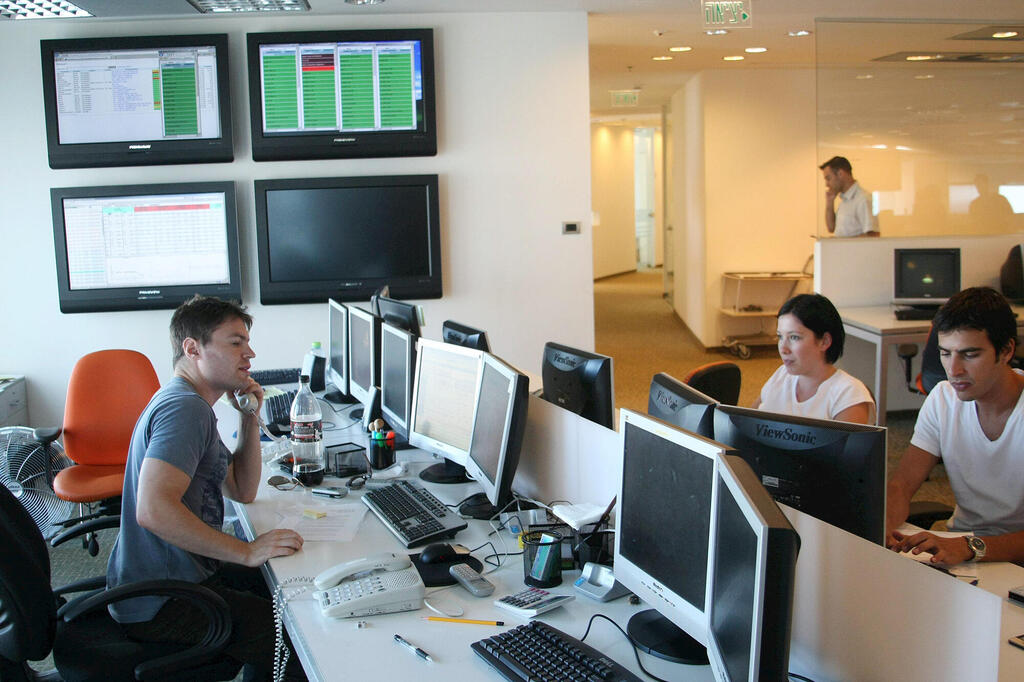
Israeli startup funding increased more than fivefold over the past decade, totaling $95 billion
The Israel Innovation Authority’s “The State of High Tech” annual report revealed that in 2022 the high-tech sector accounted for 18.1% of Israel's GDP
In recent months, the high-tech industry has taken on two roles it is not accustomed to: a leader in social protest and a target of criticism. The senior executives of the industry, who were previously seen as "disconnected individuals solely interested in technology and investments," have shown remarkable social engagement in the protest against the judicial overhaul, while also becoming the subject of criticism from reform supporters.
An annual report published by the Israel Innovation Authority sheds light on the industry's significance and its unique nature in the global landscape. The industry has become increasingly vital to the entire economy, yet it remains heavily dependent on private investors, with the majority originating from abroad. In 2022, the high-tech sector accounted for 18.1% of Israel's GDP, surpassing other sectors in terms of both contribution and growth. A decade ago, high-tech's contribution was 50% larger than that of the trade and retail sector, which was the second largest in Israel. By 2022, the gap had increased to 90%.
The centrality of the high-tech industry to the Israeli economy is unparalleled worldwide. In the United States, where technology has also been a major driver of growth in the past decade, high-tech only accounts for approximately 10% of GDP. In Europe, the average is even lower, ranging from 5% to 6%. On the other hand, Israel stands at the opposite end of the spectrum, with 91% of high-tech investments coming from the private sector, of which 80% originates from foreign sources.
Compared to other countries in the OECD, Israel lags behind in terms of government investment in research and development. While this reflects the level of maturity and investor interest in the Israeli ecosystem, it also puts Israel at a disadvantage during times of global economic slowdown and dwindling funding sources for investment funds.
"The preservation and cultivation of foreign investors' trust in the local high-tech sector is crucial for the entire Israeli economy," says Dror Bin, the CEO of the Israel Innovation Authority. "We have witnessed a significant decrease in investments and even a decline in high-tech employment in recent quarters. Based on past experience, we usually observe an increase in capital raising and employment in Israeli high-tech two quarters after a recovery in the Wall Street capital market. Considering the rise in the Nasdaq since the beginning of the year, one would expect an increase in capital raising and employment in Israel during the summer months. I hope this will be the case."
It is not clear whether the high-tech industry actually desires greater government participation in financing. Bin believes that the government should play a more active role in investing in risky and highly innovative areas such as quantum computing, foodtech, and climate tech. He states: "Israeli high-tech lacks sufficient diversity. Forty percent of the companies are engaged in corporate software, fintech, and cybersecurity, and 50% of venture capital investments are directed towards these areas. There is not enough activity in Israel by funds specializing in other fields, and we are exploring ways to attract new investment entities."
The Innovation Authority's report provides an in-depth analysis of the high-tech workforce. Women, ultra-Orthodox individuals, and Arabs still constitute a significant minority, and their participation in the industry has only marginally increased over the past decade. Women make up 33.9% of the workforce, ultra-Orthodox individuals account for 3%, and Arabs represent just 2%.
The entire industry currently employs 14% of the workforce in Israel, a sharp increase from 10.6% in 2014. For the first time, the Innovation Authority includes technological workers outside the traditional high-tech industries, such as programmers in retail chains or engineers in banks, in this calculation. The report also examines the impact of the recent trend of large tech companies expanding in Israel and hiring not only technological workers but also employees who traditionally have not been part of the sector, such as those in marketing or finance.
The examination reveals that the employment multiplier, the ratio between tech and non-tech workers, increases as companies grow larger. A high employment multiplier is crucial for the economy as it allows for more workers to access high-wage jobs. Large software companies employ an average of 2.55 non-technological workers for every development employee, whereas startups have a significantly lower ratio of 0.32. Growth companies, employing 20% of the industry's workers, have an average of 1.34 non-technological workers for every engineer and serve as the primary engine of employment.
Although the number of high-tech employees has increased, the majority of the growth over the past decade has been in technological positions rather than supporting roles. In 2014, there was one non-technological employee for every high-tech employee. By 2022, this ratio had dropped to "half an employee." Another factor contributing to the increase in tech jobs has been the digital transformation of non-technological industries, leading to the recruitment of employees to support these processes. The number of such employees grew by 34% over the last decade.
The integration of high-tech workers into other sectors has resulted in a shift in the labor productivity index, which was previously dominated by the technology sector. In 2022, the banking, insurance, and finance industry surpassed high-tech in terms of hourly output per employee for the first time. Although high-tech productivity has grown by 29%, lower than the economy's overall growth rate of 42%, it still exceeds that of 90% of workers in other sectors.
The financial services industry stands out in terms of high productivity, not solely due to low competition but also thanks to streamlined processes and the integration of technological workers. Productivity in this industry has increased by 50% over the past decade.
As of April 2023, there were 9,093 technology companies operating in Israel. Throughout the decade, a total of 11,865 companies were established, raising $95 billion. This represents a fivefold increase from 2013 to early 2023 and places Israel as the third largest hub in terms of the number of companies, following San Francisco and New York, and sixth in terms of funding. However, despite the seemingly high numbers, there has been a decline in the number of startups in recent years. In 2014 and 2015, there was a record of nearly 1,400 companies established, while in 2021, only 728 companies were founded, with a further decrease to 633 in 2022. This trend is not unique to Israel but is a global phenomenon. The Innovation Authority attributes the decrease primarily to the decline of the social media and advertising sector, which has experienced a 70% decrease since 2021. Another contributing factor is the shortage of skilled personnel and the challenges faced by startups in competing with the conditions offered by larger companies.
Bin emphasizes that even large organizations have learned to be innovative and develop internal startups to retain employees. Are there too many startups today compared to 2014, or too few? The Innovation Authority believes that the current numbers are reasonable, stating: "It is better to have an excess than a shortage, and I call upon entrepreneurs to take action and establish groundbreaking startups at this time."
One of the key messages in the report is that although Israel has become a star and a magnet for entrepreneurs and investors, many countries worldwide are attempting to replicate its model. For instance, in 2022, London surpassed Israel in terms of high-tech company hires for the first time, and Paris is rapidly growing, potentially surpassing Israel in the coming years.
"10-15 years ago, most startups originated in Silicon Valley or Israel, but now, developed economies worldwide have recognized that innovation is the key to the future economy and are emulating the Israeli model," concludes Bin. "Everyone is competing for the same venture capital and striving to provide convenient conditions for entrepreneurs and employees. Today, it is relatively easy to obtain high-tech work visas almost anywhere globally. Therefore, Israel must remain vigilant and maintain its attractiveness."















